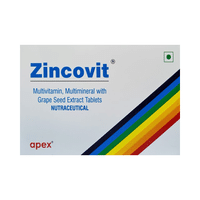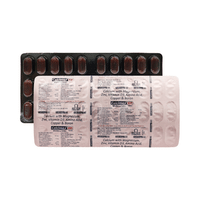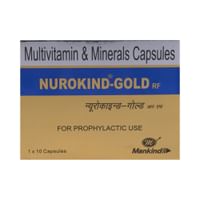Rs.136for 1 strip(s) (10 soft gelatin capsules each)
food interaction for Geomax-D3
alcohol interaction for Geomax-D3
pregnancy interaction for Geomax-D3
lactation interaction for Geomax-D3
food
alcohol
pregnancy
lactation
Geomax-D3 Max Softgel Capsule may be taken with or without food.
None
None
CAUTION
Do not drink alcohol while you are taking this medicine. Geomax-D3 Max Softgel Capsule may cause excessive drowsiness when taken with alcohol.
UNSAFE
Geomax-D3 Max Softgel Capsule is not recommended during pregnancy as there is positive evidence of fetal risk based on animal studies. However, it may still be prescribed by a doctor in situations where the benefits outweigh the risks.
CONSULT YOUR DOCTOR
Geomax-D3 Max Softgel Capsule should be used with caution during breastfeeding. Breastfeeding should be held until the treatment of the mother is completed and the drug is eliminated from the body.
CAUTION
SALT INFORMATION FOR Geomax-D3
Calcitriol(0.25mcg)
Uses
Calcitriol is used in the treatment of post menopausal osteoporosis and calcium deficiency.
How it works
Calcitriol is the active form of Vitamin D. It raises Vitamin D levels in your blood. This in turn raises calcium levels in your blood by helping you absorb more calcium from your intestine.
Common side effects
Headache, Nausea, Abdominal pain, Vomiting, Weight loss, Increased calcium level in blood, Rash, Urinary tract infection, Itching, Erythema (skin redness), Decreased appetite, Increased creatinine level in blood, Dry skin, Worsening of psoriasis, Hypersensitivity, Feeling thirsty, Dehydration, Calcinosis cutis, Fever, Skin swelling, Contact dermatitis
Calcium Carbonate(500mg)
Uses
Calcium Carbonate is used in the treatment of nutritional deficiencies.
How it works
Calcium Carbonate provides essential nutrients
Common side effects
Constipation, Increased calcium level in blood, Decreased phosphate level in blood, Milk-alkali syndrome, Abdominal bloating, Xerostomia, Acid reflux, Decreased appetite, Irritability, Vomiting, Nausea, Headache
Methylcobalamin(1500mcg)
Uses
Methylcobalamin is used in vitamin B12 deficiency.
How it works
Methylcobalamin is a form of vitamin B12 that restores its level in the body thereby helping in treating certain anemias and nerve problems.
Common side effects
Decreased appetite, Diarrhea, Nausea, Rash
Folic Acid(400mcg)
Uses
Folic Acid is used in the treatment of anemia due to chronic kidney disease, iron deficiency anemia and anemia due to folic acid deficiency.
How it works
Folic Acid is a form of vitamin B. It plays a vital role in the formation of red blood cells, which carry oxygen throughout the body. It is also essential in pregnancy due to its role in the development of the unborn baby's brain and spinal cord.
Common side effects
No common side effects seen
Boron(1.5mg)
Uses
Boron is used in the treatment of .
Common side effects
Limited data available
SUBSTITUTES FOR Geomax-D3
25 Substitutes
25 Substitutes
Sorted By
- Recalmin D3 Max Soft Gelatin Capsule(10 soft gelatin capsules in strip)Rs. 13.60/Soft Gelatin Capsule
 Rs. 196.80same price
Rs. 196.80same price  Rs. 267.80pay 84% more per Soft Gelatin Capsule
Rs. 267.80pay 84% more per Soft Gelatin Capsule Rs. 342.10pay 149% more per Soft Gelatin Capsule
Rs. 342.10pay 149% more per Soft Gelatin Capsule Rs. 402.10pay 91% more per Soft Gelatin Capsule
Rs. 402.10pay 91% more per Soft Gelatin Capsule Rs. 392.80pay 91% more per Soft Gelatin Capsule
Rs. 392.80pay 91% more per Soft Gelatin Capsule
Expert advice FOR Geomax-D3
- Do not take any other forms of Vitamin D unless your doctor suggests.
- Take calcium supplements along with Vitamin D3 as suggested by your doctor.
- Drink plenty of fluids (such as water) as it is important not to become dehydrated.
- Avoid using antacids without your doctor's advice. Some antacids can make it harder for your body to absorb calcitriol.
- Consult your doctor if you notice a metallic taste in mouth, muscle or joint pain, headache or drowziness.
Frequently asked questions FOR Geomax-D3
Calcitriol
Q. What is Calcitriol? What is it used for?
Calcitriol is the active form of Vitamin D. It increases the levels of Vitamin D in your blood which helps to increase calcium levels in the blood by increasing the absorption rate of calcium from your intestine. Thus, it is used in the treatment of calcium deficiency and postmenopausal osteoporosis.
Q. Is Calcitriol effective?
Calcitriol is effective if used in the dose and duration advised by your doctor. Do not stop taking it even if you see improvement in your condition. If you stop using Calcitriol too early, the symptoms may return or worsen.
Q. How should Calcitriol be taken?
Calcitriol should be taken in the dose and duration advised by your doctor. It can be taken with or without food. However, it would be best to take it at the same time each day to avoid the chances of missing a dose.
Calcium Carbonate
Q. What is supracal/shelcal 500/cipcal 500?
Shelcal, supracal, cipcal contain calcium carbonate along with vitamin D3
Q. What is it used for?
These preparations are used as a calcium supplements
Q. Is calcium carbonate/shelcal 500 chewable?
Yes, however it depends on dosage form available. If it is an oral tablet it has to be swallowed
Methylcobalamin
Q. What is Methylcobalamin?
Methylcobalamin contains vitamin B12. Vitamin B12 is an essential nutrient which is required by the body to make red blood cells and maintain a healthy nervous system. It is also important for releasing energy from food and using vitamin B11 (folic acid).
Q. Why can’t I get sufficient vitamin B12 from my diet?
You can get vitamin B12 from sources like meat, fish, eggs and dairy products. While people who are vegetarian or vegan may not get Vitamin B12 as it is not found naturally in foods such as fruits, vegetables and grains. Therefore, deficiency of Vitamin B12 is usually noticed in vegetarians or vegans.
Q. What happens if I have vitamin B12 deficiency?
Deficiency of vitamin B12 may cause tiredness, weakness, constipation, loss of appetite, weight loss and megaloblastic anemia (a condition when red blood cells become larger in size than normal). It may also lead to nerve problems such as numbness and tingling in the hands and feet. Other symptoms of vitamin B12 deficiency may include problems with balance, depression, confusion, dementia, poor memory and soreness of the mouth or tongue.
Folic Acid
Q. Is it ok to take Folic Acid when not pregnant?
Usually, folic acid requirements are met from the diet and therefore additional supplements are not required. In general, Folic Acid is recommended only when you have a deficiency of folic acid. However, Folic Acid is advised to women who are pregnant and who want to conceive. The medicine should be taken at least 4 weeks before pregnancy and should continue its use up to 3 months of pregnancy. Consult your doctor if not sure.
Q. Can Folic Acid cause weight gain?
Animal studies on Folic Acid suggest that taking the medicine in excess along with a high-fat diet may lead to weight gain and fat accumulation. But this weight gain was not evident when taken along with a normal or low-fat diet, even with excess Folic Acid. In humans, similar studies have not been conducted and therefore knowledge regarding weight gain is lacking. Therefore, if you are on Folic Acid eat a low-fat meal to be on the safer side.
Q. How long does Folic Acid take to work?
Folic Acid usually starts working within a few hours of taking it. If you are taking it for iron deficiency anemia, you may start feeling better after a few weeks of taking it. In case you are taking it during pregnancy, you may not notice any difference but this does not mean that the dose is not working. Continue taking Folic Acid for the duration recommended by your doctor.






















